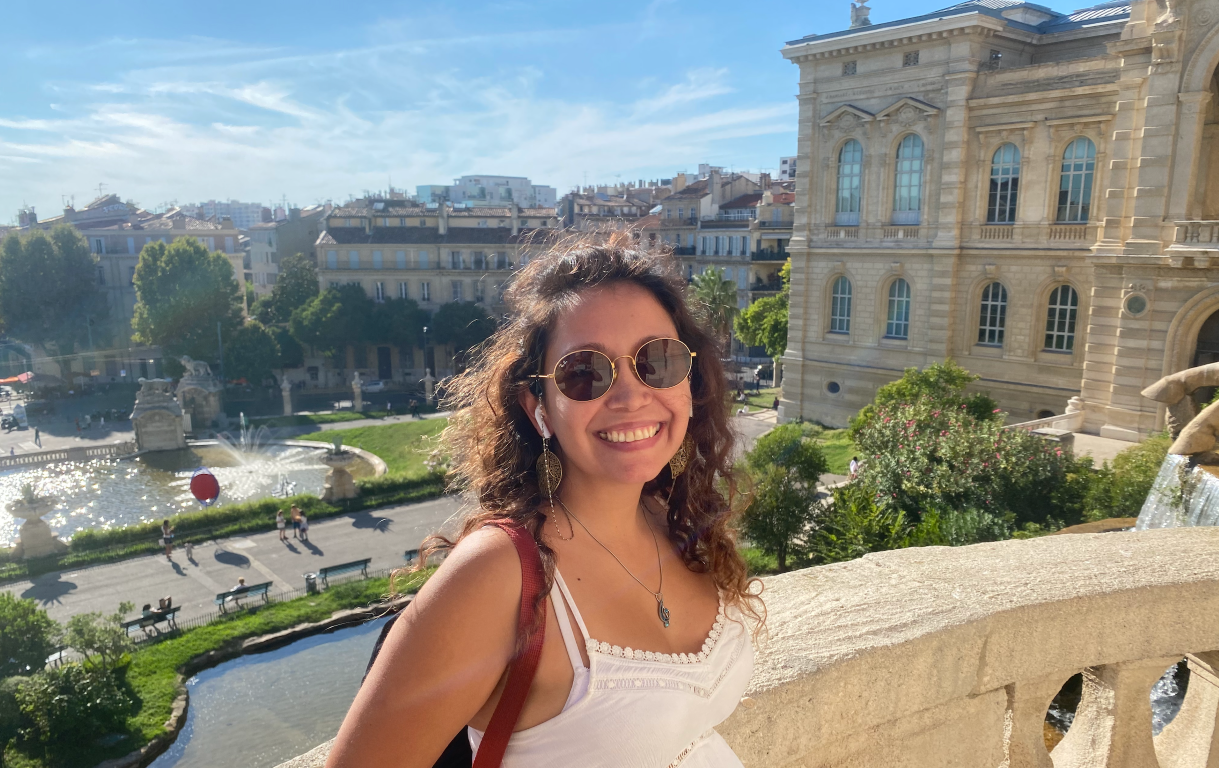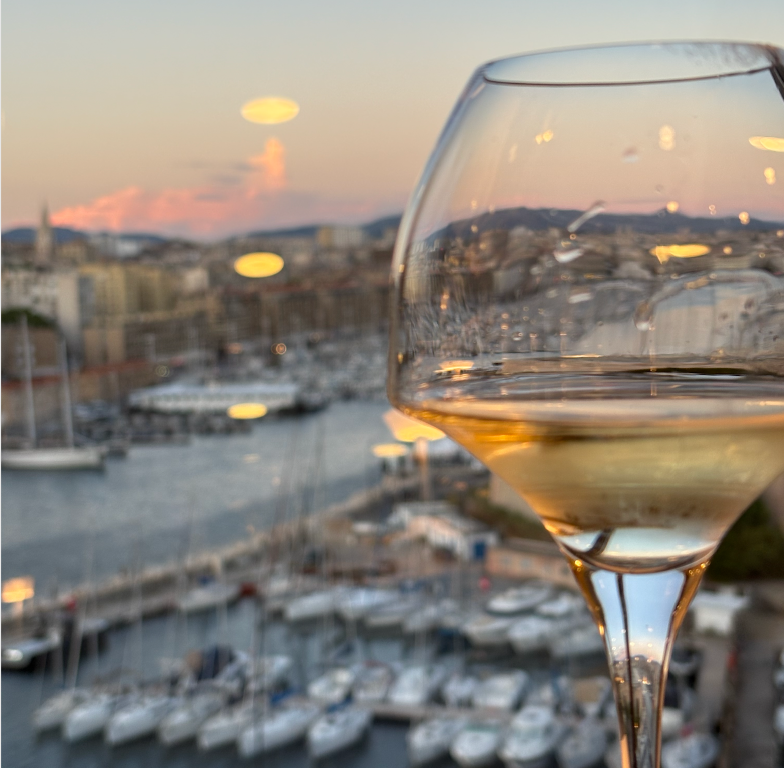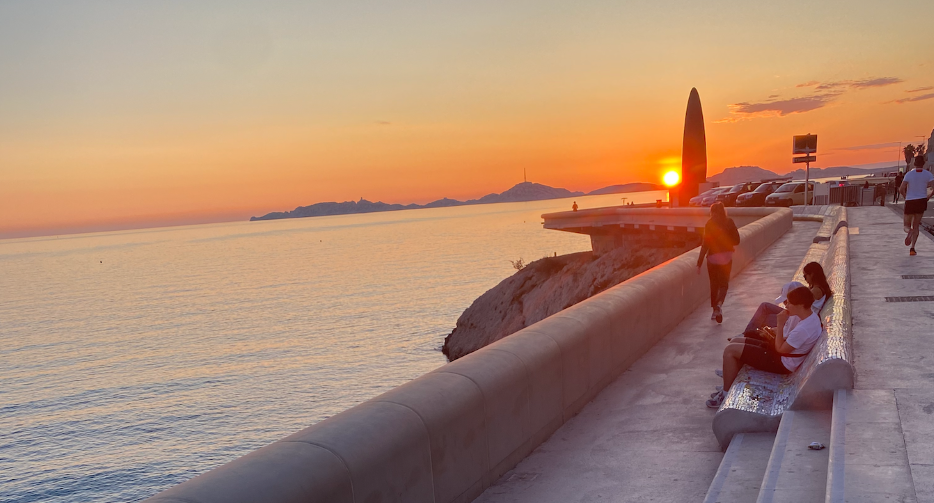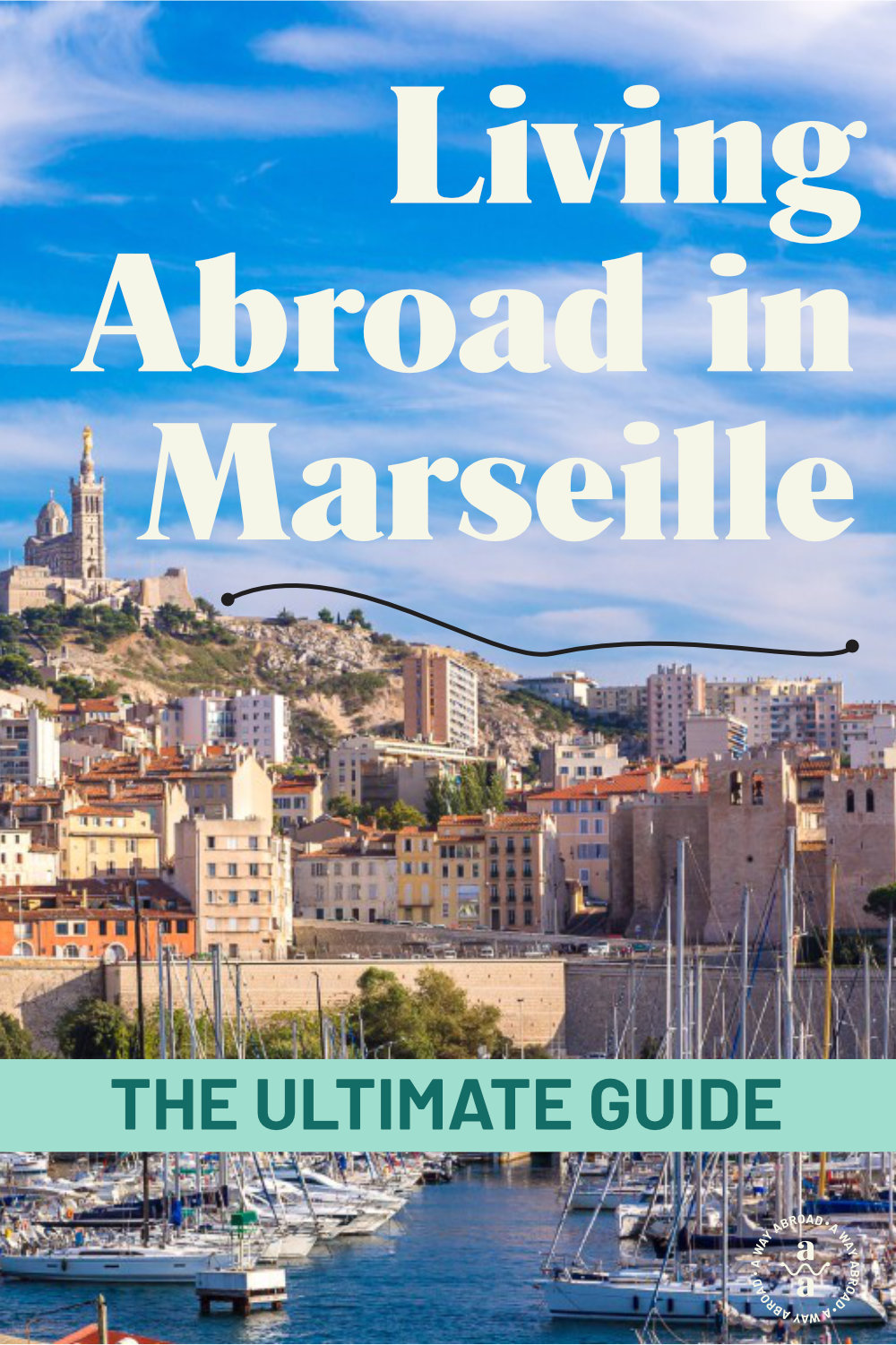Marseille, France. Ahh, where to start?
This Provençal port city in Southern France is one of those places so unique it should have its own regional category. When you think of French cities, you might imagine Paris, Bordeaux or others.
Well, Marseille is different. So, forget what you think you know.
Sit back and relax, because here is everything you really need to know about living in Marseille, the vibrant and cosmopolitan city I’m proud to call home—and why you might love moving here as an expat.
Short on time? Here's the cheat sheet
💭Living in Marseille is a great choice for those that want a chic city that's truly unique within France.
🏠When house hunting, consider moving to 1st, 2nd, 6th, 7th, 9th or 12th Arrondissements.
🛂Most non-EU citizens who move here are on a work visa, student visa, or family visa.
💰Cost of living can be high. Earn travel rewards on all expenses with a Capital One Venture Card.
📞Save the hassle of getting a local SIM or the cost of roaming with Airolo, an e-SIM that’ll have you connected from the moment you arrive.
☂️Although the summers are packed with tourists,
🏖️Living in Marseille means a lot of sunshine and an evergrowing list of ways to entertain yourself.
A Quick Introduction to Marseille
Without having ever visited Marseille, I landed here in 2021, right when Covid was finally chilling out—the big city still had that quiet, almost sleepy vibe back then. Fast forward to now, and it’s full-on summer madness—what we call here high season. Sure, summer is summer in most cities, but in Marseille? It’s next level.
If you’re ready to soak up the blazing sun and dodge the tourist crowds (yes, we’re all here chasing that French charm), you’re in for a wild ride.
Marseille is a historic place, once a bustling gateway to the Mediterranean, shaped by centuries of trade and cultural diversity. The result? A beautiful city that’s buzzing with life, rich with diverse cultural heritage and stories around every corner.
Marseille’s population and picturesque locations blend traditional heritage with fresh, artsy vibes. Walk the winding streets in the Vieux-Port area and you’ll feel it—the city’s personality is unmistakable and unapologetic.
Not sure if Marseille is right for you? Consider these other French cities:
The French in Marseille—They’re Something Else

Now, about the locals—they’re a whole vibe. Down here in the south, you’ll meet some of the kindest, warmest native Frenchies. But heads up: you’re also stepping into full-on French culture territory, which can sometimes be... let’s say, a bit blunt.
If you don’t drop a proper “Bonjour” or mess up your French, expect some side-eye or that classic French coolness. Native French citizens are incredibly proud of their language—many won’t speak English or aren’t keen to try. But here’s the kicker: show a little effort, and suddenly they’re your best mates, switching to English and even cracking jokes.
My experience? Marseille means adjusting. I arrived clueless, barely speaking French beyond “bonjour,” thinking my friendly waves and gestures would do the trick. Spoiler alert: nope. It took me a while to realise that in France, language is everything.
Funny thing is, Spanish gets you a lot further than English here. Marseille’s proximity to Spain means many locals have some knowledge of it from school and are proud to show off their skills—fun fact: you can jump on a train for 4 hours or a cheap bus for 8 and be in Barcelona!
Living Costs: How Expensive Is It to Live in Marseille?
Now, to the good stuff! How affordable is it to move here? Well, to be honest, this depends on several things. But here are the important facts.
Minimum wage in France in 2025 is set at 1,426.30€ net for a 35-hour week. For transport, you can get a monthly card costing around €40, giving you access to buses, metros, trams and even electric bikes.
Within the city centre, you can easily walk everywhere in 30 to 40 minutes, if buses don’t tempt you. Although trust me, you’ll appreciate the air conditioning on those hot summer days.
A good-sized meal in a restaurant or café costs between €10 and €20. A glass of wine—always excellent because, well, France—ranges from €4 to €7, and a pint of beer is generally in the same price bracket.
Health-wise, France has one of the best public systems. As long as you have your social security number—or even better, your Carte Vitale—you can freely visit any doctor, buy medicine, and more. Often you pay upfront and get refunded later. Keep in mind, for non-urgent visits like seeing your gyno (though it really should be), only part of the payment is reimbursed. There’s also a private complementary health system called Mutuelle, and if you’re employed, they have to cover 50% of the cost.
Local charges like water, electricity, and internet vary depending on the building’s age. But on average, a couple or single person in a studio can manage around €50 per month—unless you have all the windows open with the AC blasting and lights on all night!
What about rent? We’ll dive into that next.
Where to Live in Marseille

Let's explore the city’s best neighbourhoods and arrondissements.
Marseille is a vibrant and cosmopolitan city with a fascinating history stretching back over 2,600 years. Originally founded by Greek sailors as Massalia, it’s Europe’s oldest port city and a perfect blend of rich heritage and modern French living.
Fast forward to 2025, and Marseille is buzzing with life, culture, and character. This big city is split into 16 unique arrondissements, each offering its own flavour. As an expat, here are some of my top picks based on personal experience and local insights:
1st Arrondissement
Home to the train station Saint-Charles, the bustling rue de la République, and the lively Noailles market. It’s packed with energy during the day, but be careful at night — it’s not the safest area after dark.
2nd Arrondissement
This is where the iconic Vieux Port begins — the heart of Marseille’s tourist buzz. Packed with restaurants, bars, and boat services offering ferry rides to the nearby islands and scenic tours. The district also includes the charming Le Panier neighbourhood, known for its thriving art scene and historical vibes. Perfect for creatives and anyone wanting to soak in Marseille’s cultural diversity.
6th Arrondissement
A favourite among travellers and locals alike, it boasts a vibrant scene with cosy cafés, bars, and plenty of live music. It’s well-connected through its public transport, making it easy to commute anywhere and enjoy Marseille's nightlife.
7th & 8th Arrondissements
These areas are a bit pricier but offer stunning sandy beaches and sea views — perfect for beach lovers who want to live close to the Mediterranean coast.
9th Arrondissement
Nature lover's paradise! This arrondissement is home to the breathtaking Calanques National Park, known for its dramatic rocky cliffs and crystal-clear waters. While it’s a bit of a commute for daily life, the outdoor adventures here are unbeatable, and the bus network covers it.
12th Arrondissement
It's a quaint neighbourhood. Ideal for families, thanks to its abundance of green spaces and quiet residential streets.
Rent Prices in Marseille's City Center
Space for a T1 or studio typically starts at around €15/m² but varies widely depending on location, view, sunlight exposure, and more. In practical terms, well-located studios can be found for about €550 per month.
Websites like Leboncoin are packed with ads to rent or buy all year, but it might get harder closer to summer as more owners turn properties into Airbnb rentals. I’ve also used an app called Jinka twice to look for studios; it’s handy because it aggregates listings from Leboncoin and other sites.
Navigating Visa Options for Moving to France

There are several pathways to move to France. Some friends came by studying a master’s degree here, which made it easier to obtain a postgraduate visa. Another option is the long-stay tourist visa, granting most rights but not work permission.
The most common route—and the one I have—is the family visa. To qualify, you need to be PACSed (in a civil union) with a French citizen and prove you share a life together, such as the same address and an official certificate.
Another idea would be to take advantage of the DUEF Program and get a student visa to learn French. This can set you up for success with the language to later be able to job hunt or transition to another type of visa.
Keep in mind, this is still France, and its bureaucracy isn’t always efficient. Plus, the Marseillaise are known for their relaxed vibes, so manage your timeline carefully.
Luckily, the official French government website has all the information clearly organised. You apply to the department where you’ll be living, and the step-by-step process is straightforward.
Is Living in Marseille Perfect for You?
This big city offers more than just visa options. It boasts breathtaking landscapes, a cultural scene, and over 300 days of sunshine annually—making it the sunniest large city in France. While Marseille’s mild climate means great weather for most, be prepared for hot summers it could get a bit overwhelming.
But in general, there's always enough to do here. Keeping an active social life and a vibrant expat community around you won't be a problem in a cosmopolitan city like Marseille.
The city’s extensive public transport system includes trains, boats, a large international airport, and buses, offering frequent ferry services and excellent connectivity. It’s perfect for travel lovers who don’t like staying in one place for long. This connectivity also helps explain Marseille’s vibrant expat community.
What do you think about the city? Will you move here?
If you want to dive deeper into what living in Marseille truly feels like, feel free to download my complete Marseille Guide here.
Hero photo courtesy of depositphotos.com.









.png)
.png)